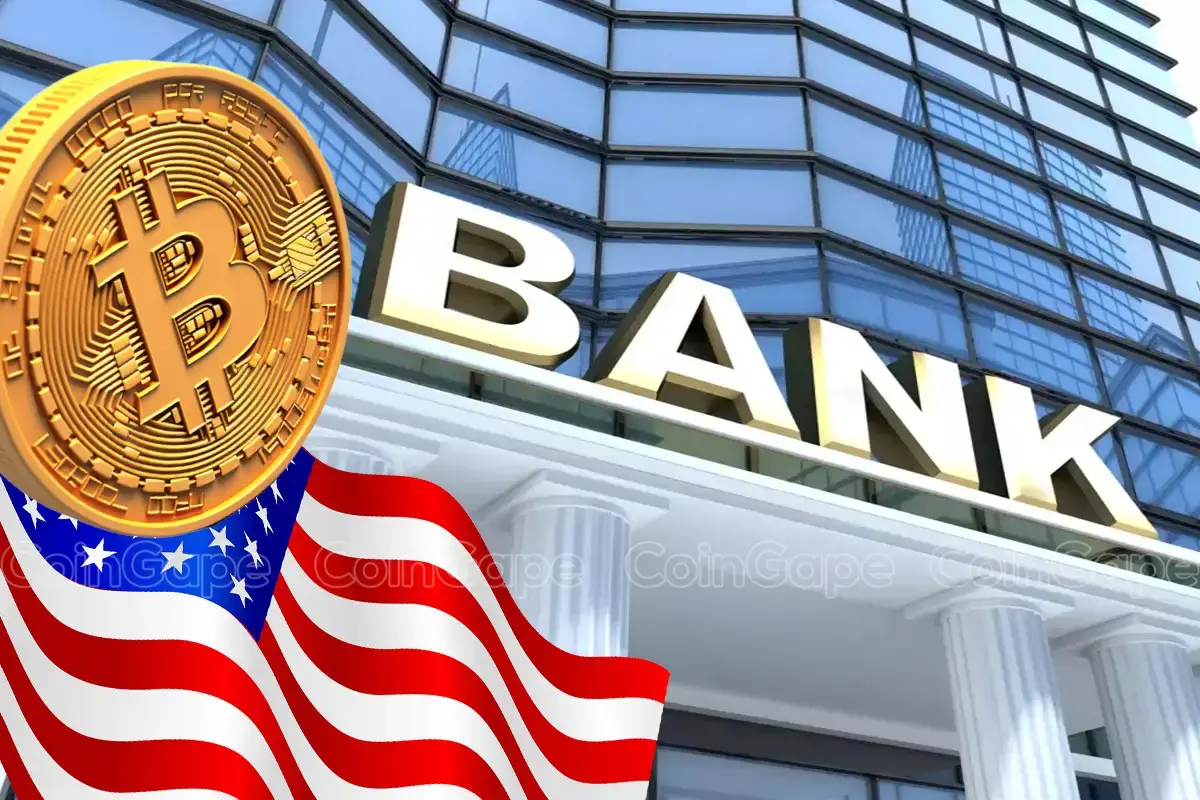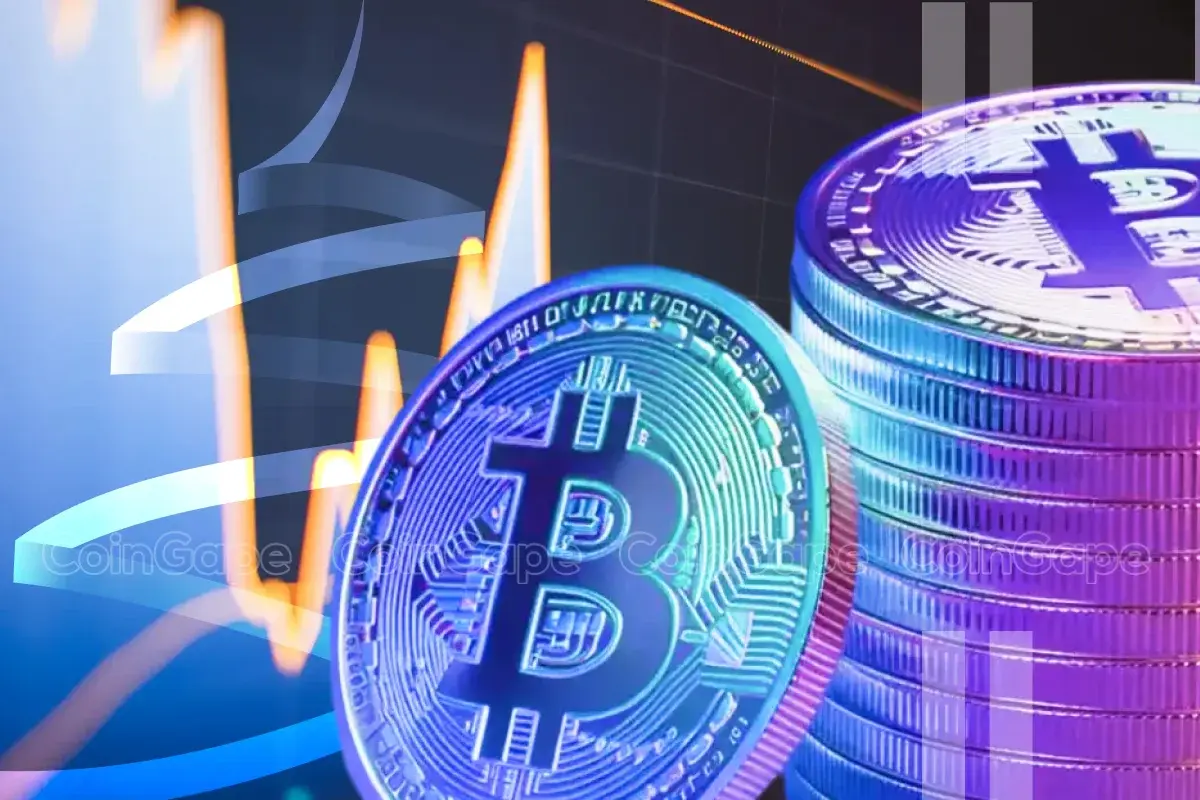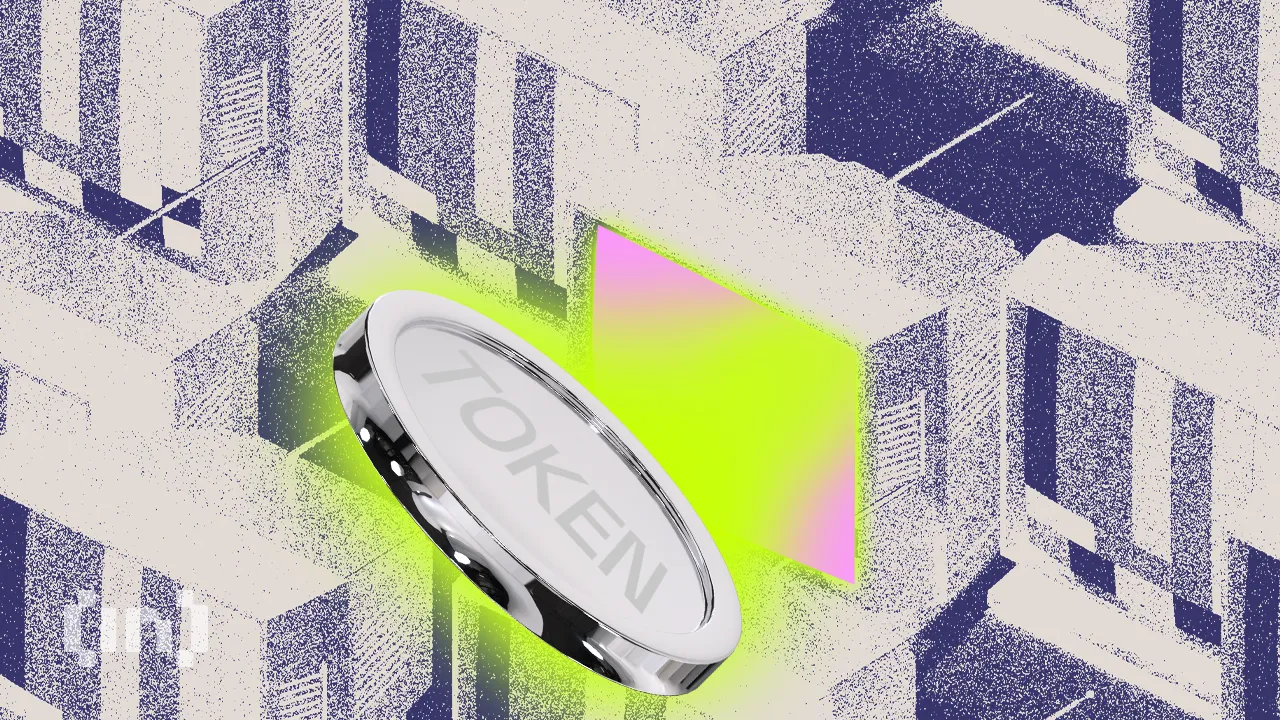Regulation
US Lawmakers Investigate Debanking Of Crypto Companies

The US government under Joe Biden has allegedly been stifling the crypto industry through the process of debanking, which experts labeled “Operation Chokepoint 2.0.” With Donald Trump’s re-election, the crypto industry expects a reform that will lead to the US banking industry embracing cryptocurrencies. US lawmakers have set sight on the government’s regulatory overreach, sparking investor enthusiasm.
In a recent development, the US Committee on Oversight and Government Reform has initiated investigations on the alleged debanking of crypto companies and individuals. While debanking refers to the isolation of crypto firms from the banking sector, the US lawmakers’ move intends to put an end to the authority’s indirect control over the crypto space.
US Oversight Committee Probes into Operation Chokepoint 2.0
According to a Forbes report, the US Oversight Committee has launched investigations on the “improper debanking” of individuals and organizations related to crypto. Under the leadership of Chair James Comer (R-Ky.), the Committee aims to collect testimonies from affected individuals and companies.
On Friday, the US Oversight Committee sent a letter to industry leaders, revealing their investigation plans. By examining the groups claiming to be debanked, the committee seeks to determine whether the trend is driven by their independent decisions or by government overreach.
Industry Leaders Allege Government’s Indirect Control Over Crypto
The term “Operation Chokepoint” could be traced back to former President Barack Obama’s reign when financial services were restricted for high-risk industries. Reflecting on the term, Andreessen Horowitz co-founder Marc Andreessen called the process of debanking during the Biden era “Operation Chokepoint 2.0.”
Industry experts like Coinbase CEO Brian Armstrong and CLO Paul Grewal corroborated Andreessen’s comments. Grewal posited, “Financial regulators have used multiple tools at their disposal to try to cripple the digital-asset industry.”
Chokepoint 2.0: SEC’s Aggressive Regulation Sparks Backlash
Notably, Uniswap Labs Founder Hayden Adams complained that his bank accounts were closed without prior notice. He added, “I know many individuals and companies who have been similarly targeted simply for working in the crypto industry.”
Similarly, Brian Armstrong revealed that banks closed ties with more than 30 tech companies. He added that the US SEC and former Chair Gary Gensler attempted to “unlawfully kill our [their] entire industry.” He also addressed it as the Biden government’s “most unethical and un-American” action.
Meanwhile, Ripple’s CTO, David Schwartz, described Operation Chokepoint 2.0 as the government’s “indirect” regulation of the crypto industry.
Investigation on Debanking: What To Expect?
Reportedly, more than 120 crypto hedge funds were debanked over the past three years. While real estate and private credit investors enjoyed banking services, crypto hedge funds were denied the same facilities. As cited by the committee, First Lady Melania Trump shared her personal experience of being debanked, which she attributes to political bias.
With an active investigation, the Oversight Committee intends to protect crypto users and traders from unfair government control. The agency envisions ensuring an unbiased crypto trading atmosphere in the United States and thereby terminating Operation Chokepoint 2.0. The unredacted FDIC files that Coinbase secured will undoubtedly be useful in this investigation.
US Banks Remain Ready To Embrace Crypto
Recently, Circle CEO Jeremy Allaire expressed optimism about the future of crypto, anticipating that banks will soon facilitate cryptocurrency trading. He believes that Trump’s new crypto policies will cease Operation Chokepoint 2.0, collaborating with the banking industry.
At the same time, Bank of America’s CEO Brian Moynihan expressed the US banking industry’s willingness to accept cryptocurrencies. Wall Street giants are also eying the crypto market. They seek to make a strategic entry into the space to tap into its immense opportunities.
Disclaimer: The presented content may include the personal opinion of the author and is subject to market condition. Do your market research before investing in cryptocurrencies. The author or the publication does not hold any responsibility for your personal financial loss.
Regulation
US Crypto Projects Unlikely To See Zero Capital Gains Tax Benefit: Experts

The crypto community is amazed by the reports of zero capital gains tax on U.S.-based crypto projects. The move comes amid Donald Trump’s decision to make crypto a national priority regarding crypto policy and regulations, starting with signing an executive order to develop the national digital asset stockpile. However, experts claim cryptocurrencies and crypto projects developed in the United States may not see zero tax benefits.
Why Is Zero Capital Gains Tax on Crypto May Not Be Possible
Dennis Porter, CEO and co-founder of Satoshi Action Fund, in an X post on January 26 said removing capital gains on crypto entirely depends on US Congress. He asserts it is highly unlikely that the US Congress will include such a proposal in a tax bill in the near term.
He added that the primary obstacle is the significant loss in government tax revenue, making the proposal look difficult to approve currently. The primary agenda for the Trump administration is tax cuts and any policy that threatens those cuts will be sidelined.
The zero income tax on crypto presents significant practical, legal, and economic challenges. The Trump administration will review the anticipated reduction in tax on US-based crypto but not vice-versa, which could be detrimental to equities, bonds, and other financial instruments.
Eric Peterson, policy director at Satoshi Action Fund, said:
Capital gain taxes on crypto is not going to 0% folks. Congress makes tax policy, not the president. Work towards attainable goals like the de minimis exemption.
Recently, John Deaton discussed the ambiguity surrounding U.S.-based cryptocurrency projects. He questioned whether projects with operations or foundations abroad, such as Solana and Tezos, would meet the requirements for tax exemptions.
The Crypto Industry Must Lobby for Meaningful Steps Forward
Dennis Porter believes the crypto industry can take meaningful steps forward to reduce tax obligations. He suggests securing a de minimis exemption of $200 for Bitcoin and other digital asset transactions.
“This proposal aligns with the existing $200 exemption for foreign currency transactions. It’s a far more attainable and reasonable goal, with minimal impact on Trump’s ability to renew his tax cuts,” he added.
Americans who live off of Bitcoin and digital assets should not have to report every small transaction, such as buying coffee, meals, or groceries, for tax purposes. This is an overly burdensome task and it’s time we pursue this simplification of the tax code.
Porter reveals that the U.S. Congress has bipartisan support for this idea and it could become a reality with de minimis exemption. In order to be successful, it must be tied to inflation and bipartisan support that balances innovation and fairness.
Crypto Market Bullish on Zero Crypto Gains Tax Proposal
The crypto market participants are bullish on the US-based crypto and likely zero tax on these crypto as the Trump administration introduces pro-crypto policy and regulations.
Eric Trump confirmed advocating for zero capital gains tax for the U.S.-based crypto projects. ‘Made In USA’ crypto such as XRP, Solana (SOL), Hedera (HBAR) and others will benefit from tax cuts. As per CoinGecko, the US-based crypto market cap is over $560 billion.
Meanwhile, Eric Trump hinted at a 30% capital gains tax on non-US crypto projects. As per experts, this sharp divide is designed to attract global crypto investments to the United States.
Disclaimer: The presented content may include the personal opinion of the author and is subject to market condition. Do your market research before investing in cryptocurrencies. The author or the publication does not hold any responsibility for your personal financial loss.
Regulation
John Deaton Raises Key Questions on U.S. Crypto Projects and Tax Exemptions

Pro-XRP lawyer John Deaton has raised critical questions regarding tax exemptions for U.S.-based cryptocurrency projects. His remarks focus on identifying which projects qualify for the proposed zero capital gains tax and the implications for companies with global affiliations.
Crypto Lawyer John Deaton Raises Concerns Over U.S. Tax Policies
In a recent tweet, John Deaton discussed the ambiguity surrounding U.S.-based cryptocurrency projects. He questioned whether projects with operations or foundations abroad, such as Solana and Tezos, would meet the requirements for tax exemptions.
Solana Labs, headquartered in San Francisco, operates under the Solana Foundation based in Switzerland, while Tezos was developed by U.S.-based Arthur and Kathleen Breitman but is governed by the Switzerland-based Tezos Foundation. Deaton’s inquiry centers on whether such hybrid structures qualify as U.S.-based entities under the proposed tax policies.
John Deaton also pointed to cryptocurrencies like XRP, XLM, HBAR, AVAX, and XCH, which may face fewer jurisdictional hurdles. These projects meet the criteria on the surface, potentially positioning them to benefit from the zero capital gains tax.
Moreover, Deaton emphasized the potential for tax incentives to drive broader adoption of cryptocurrencies as corporate treasury assets. He questioned whether companies adopting digital assets like XRP, XLM, and HBAR would gain a competitive edge under the proposed zero capital gains tax policy.
He also raised concerns about the treatment of foreign entities with U.S. operations, such as Hut 8, and their eligibility for tax benefits.
More so, recently the pro-XRP lawyer highlighted four key objectives for the White House Crypto Council. He urged its members to focus on critical areas like SAB 121, the establishment of a strategic Bitcoin reserve, crypto tax payments, and overarching crypto taxation policies.
U.S. Crypto Companies and Mining Firms Could Reap Benefits
John Deaton further explored how U.S.-based companies, including Ripple, Gemini, and ConsenSys, might benefit from the tax exemption if it applies to corporations. The tax breaks could incentivize these firms to expand their crypto holdings and encourage other companies to adopt cryptocurrency as a reserve asset.
Deaton also addressed the status of Bitcoin miners like Riot Platforms and Marathon Digital Holdings. These U.S.-based miners might qualify for the exemption, but questions remain about companies like Hut 8 Corp, a Canadian entity with expanding operations in the U.S. John Deaton highlighted the need for clarity on whether international companies with significant U.S. activities could also benefit.
Treasury Reserve Strategies and Corporate Crypto Adoption
Another key issue raised by Deaton involves corporations adopting cryptocurrencies like Bitcoin, XRP, and HBAR as part of their treasury reserves. He questioned whether such strategies would qualify these companies for tax benefits under the new policies.
Prominent firms like MicroStrategy, known for its Bitcoin holdings, could stand to gain from the tax exemption if their crypto reserve strategies align with the proposed framework. The policy might also encourage other companies to include crypto in their balance sheets.
More so, recently, Deaton also emphasized the broader challenges facing the cryptocurrency industry. He criticized past regulatory actions by the U.S. Securities and Exchange Commission (SEC), which he described as resource-draining and counterproductive.
John Deaton called for an end to what he referred to as “crypto wars,” urging a shift toward clearer regulations to support innovation.
Disclaimer: The presented content may include the personal opinion of the author and is subject to market condition. Do your market research before investing in cryptocurrencies. The author or the publication does not hold any responsibility for your personal financial loss.
Regulation
Will SAB 121 Abolition Allow Banks To Hold Bitcoin

Donald Trump’s crypto policies have ignited a sense of optimism within the industry, hinting at a new era of growth and innovation. The US Securities and Exchange Commission’s decision to rescind SAB 121 has further fueled confidence. Experts hope that the abolition of SAB 121 will pave the way for the establishment of Bitcoin banks.
Notably, Stacy Herbert, Director of El Salvador’s Bitcoin Office, has expressed hopefulness about banks holding Bitcoin. Her statement reflects a general excitement surrounding the integration of Bitcoin and other cryptocurrencies into the US banking industry.
SAB 121 Rescission Greenlights Bitcoin Banking
In a recent X post, Stacy Herbert, the Director of Bitcoin Office, El Salvador, commented on the potential acceptance of Bitcoin in financial institutions. While her optimism is mainly driven by the SEC’s recent abolition of SAB 121, Herbert stated, “Bitcoin banks are coming.”
Herbert’s post came in response to MicroStrategy founder Michael Saylor’s X thread on the withdrawal of SAB 121. She emphasized the benefits of Bitcoin banks, suggesting that integrating Bitcoin into traditional banking could potentially boost investments.
SEC Withdraws SAB 121, Releases SAB 122
In a phenomenal development, the US SEC withdrew Staff Accounting Bulletin No. 121 and released Staff Accounting Bulletin No. 122. While SAB 121 restricted banks’ custody of cryptocurrencies, SAB 122 reverses the rule that forced entities to log a liability when protecting client crypto assets.
SEC Commissioner Hester Peirce, who now lead the newly formed Crypto Task Force, responded to the SAB 121 abolition with an X post that read, Bye, bye SAB 121! It’s not been fun.”
Bye, bye SAB 121! It’s not been fun: https://t.co/cIwUc0isUE | Staff Accounting Bulletin No. 122
— Hester Peirce (@HesterPeirce) January 23, 2025
Similarly, Senator Cynthia Lummis expressed her contentment with the SEC’s action, stating,
SAB 121 was disastrous for the banking industry, and only stunted American innovation and advancement of digital assets. I am THRILLED to see it repealed and get the SEC back on track to fulfilling its intended mission.
Trump Government Fights Operation Chokepoint 2.0
Joe Biden’s administration has been accused of stifling the crypto industry by pressuring banks to sever ties with crypto businesses, a move critics have dubbed “Operation Chokepoint 2.0. Coinbase CEO previously said that the Biden government was trying to “kill” the entire crypto ecosystem. The SEC’s SAB 121 was also such a move that stifled the crypto economy.
However, the US lawmakers have recently launched investigations into the matter, examining the government’s regulatory overreach. While many including Brian Armstrong, Hayden Adams, and Paul Grewal have openly raised voices against Operation Chokepoint 2.0, the US Oversight Committee pledged to address the issue.
Regulatory Shifts Mark the Future of Bitcoin Banks
Trump’s executive order that focuses on crypto has ushered in a new era of crypto markets in the US. Recently, the President signed an executive order to develop a national digital asset stockpile, sparking community enthusiasm. These policy shifts, especially the abolition of the controversial SAB 121, signal the emergence of Bitcoin banks.
In anticipation of the US banking industry’s adoption of crypto, Draper University Founder Tim Draper stated,
Goodbye to SAD SAB 121. We welcome banks to the new world of Bitcoin. Banks don’t have to pretend that the dollar is better anymore.
Moreover, Bank of America CEO Brian Moynihan’s assurance that the US banking industry would embrace cryptocurrencies upon regulatory approval has bolstered hopes for mainstream adoption. Circle CEO Jeremy Allaire also remains bullish on the financial institutions’ endorsement of digital assets.
Disclaimer: The presented content may include the personal opinion of the author and is subject to market condition. Do your market research before investing in cryptocurrencies. The author or the publication does not hold any responsibility for your personal financial loss.
-

 Altcoin23 hours ago
Altcoin23 hours agoSUI Jumps 5% in 24 Hours, But This Crypto Could Steal the Show
-

 Altcoin22 hours ago
Altcoin22 hours agoBTC & Alts Mainly Consolidate, SHIB & VINE Steal Spotlight
-

 Regulation20 hours ago
Regulation20 hours agoUS Crypto Projects Unlikely To See Zero Capital Gains Tax Benefit: Experts
-

 Ethereum20 hours ago
Ethereum20 hours agoEthereum Tests Massive Falling Wedge – Breakout Could Target $4K Cycle Highs
-

 Bitcoin19 hours ago
Bitcoin19 hours agoStay At Alert! Bitcoin Bear Market Could Begin In 90 Days — Here’s Why
-

 Market19 hours ago
Market19 hours agoToken Unlocks to Watch Next Week: IMX, ALT and More
-

 Bitcoin18 hours ago
Bitcoin18 hours agoBitcoin Dominance Rebounds To 57%
-

 Altcoin21 hours ago
Altcoin21 hours agoDogecoin Price Hits Double Bottom To Trigger Massive Rally, Here’s The First Target



















✓ Share: